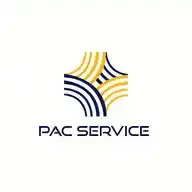
TaxationPk
266 subscribers
Verified ChannelAbout TaxationPk
Empowering You with Taxation Knowledge and Services in Pakistan.
Similar Channels
Swipe to see more
Posts

Do you know FBR plans to freeze bank accounts of businesses not in the sales tax net for FY26? 🚨 They'll target large manufacturers, but offer a 6-month sales tax-free period for new registrants! Read More: https://news.taxationpk.com/fbr-poised-to-freeze-bank-accounts-of-businesses-not-registered-in-sales-tax/
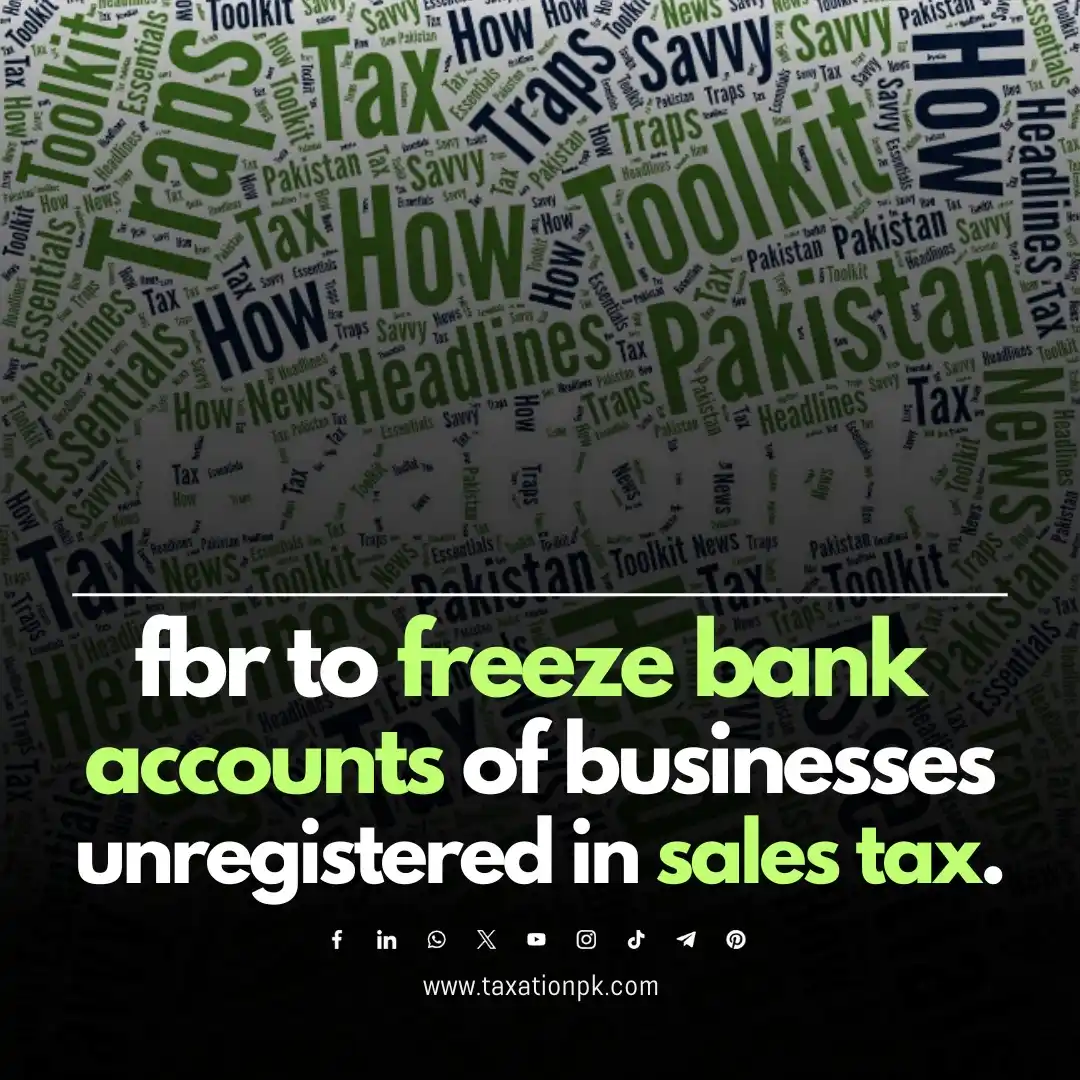

Do you know Budget FY26 just brought major tax relief?! Income tax for Rs600k-Rs1.2mn earners is cut to just 1%! Plus, GST on imported solar panels is lowered to 10%. Govt also boosted salaries & pensions! Read More: https://news.taxationpk.com/finance-minister-announces-significant-tax-relief-for-salaried-class-and-solar-sector/
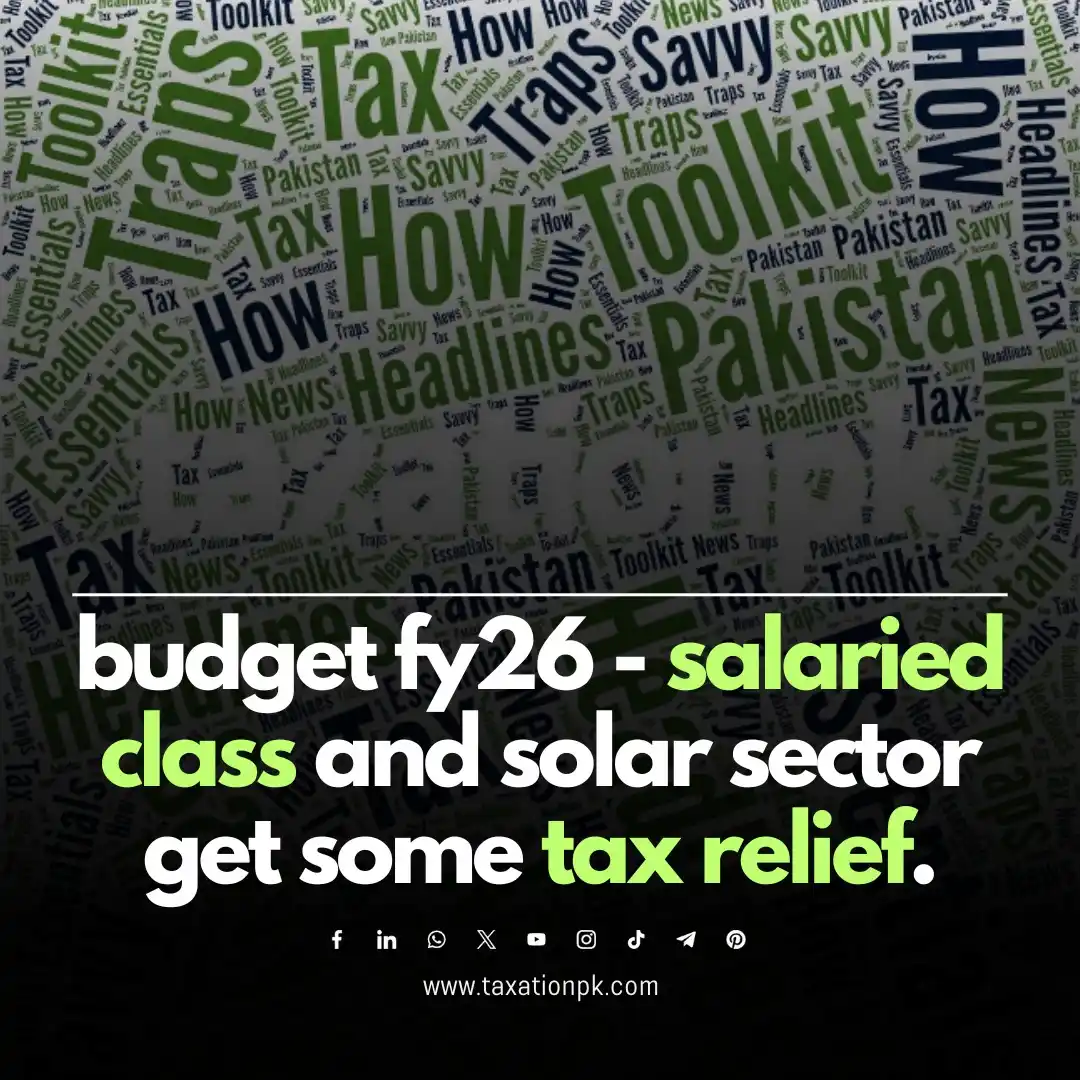

Do you know FBR just hired 520 new auditors? 🕵️♂️ They're deploying third-party experts nationwide in a massive push to boost tax scrutiny and compliance. This is just the first phase of their big transformation plan! Get ready for stricter audits! Read More: https://news.taxationpk.com/fbr-deploys-520-third-party-auditors-to-bolster-tax-scrutiny/
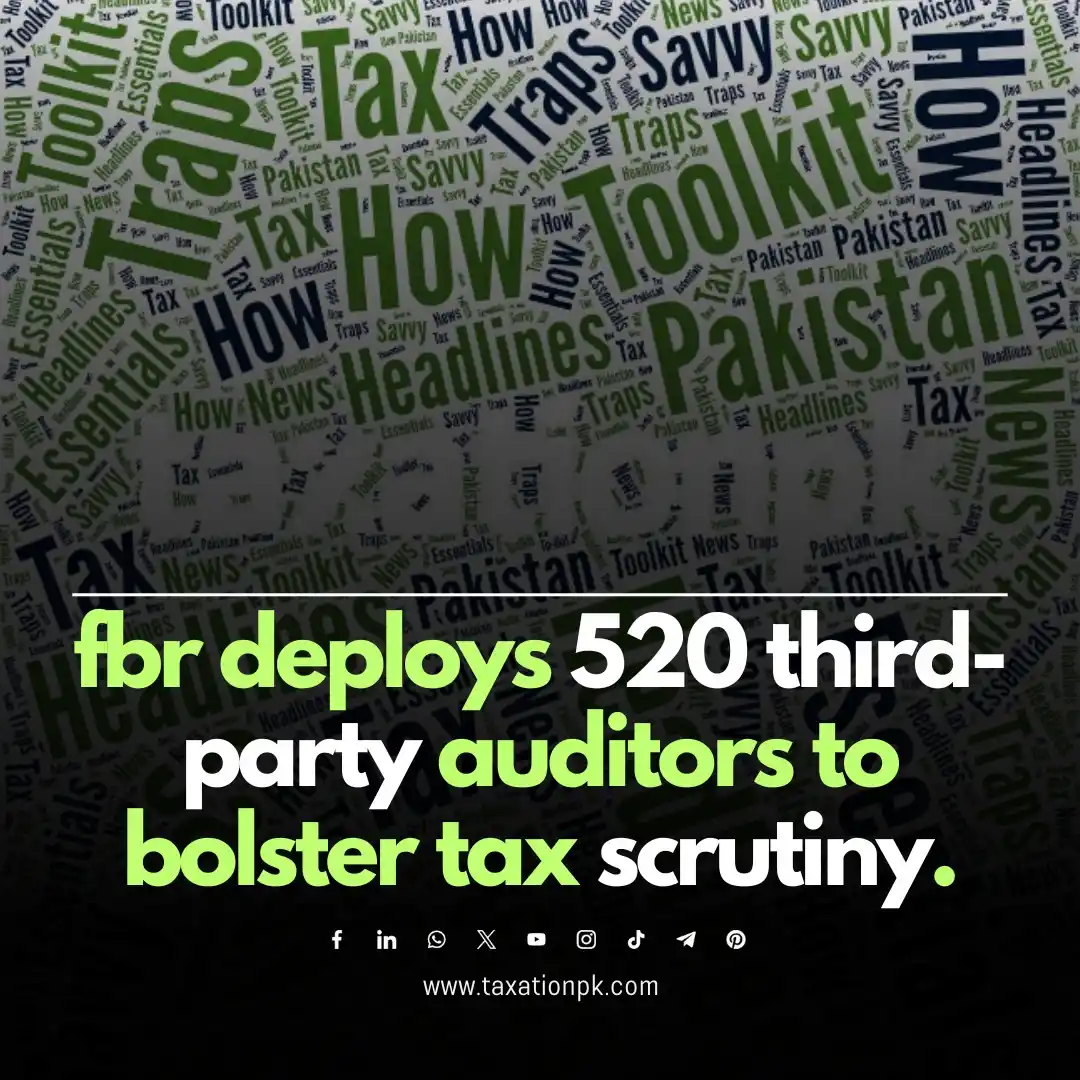

Do you know who the government is targeting with new taxes? 💸 The upcoming budget might hit pensioners and social media earners, plus increase taxes on snacks & biscuits! Non-filers also face tough new restrictions. Find out how this affects you! Read More: https://news.taxationpk.com/new-budget-to-target-non-filers-pensions-social-media-for-rs600b-revenue/
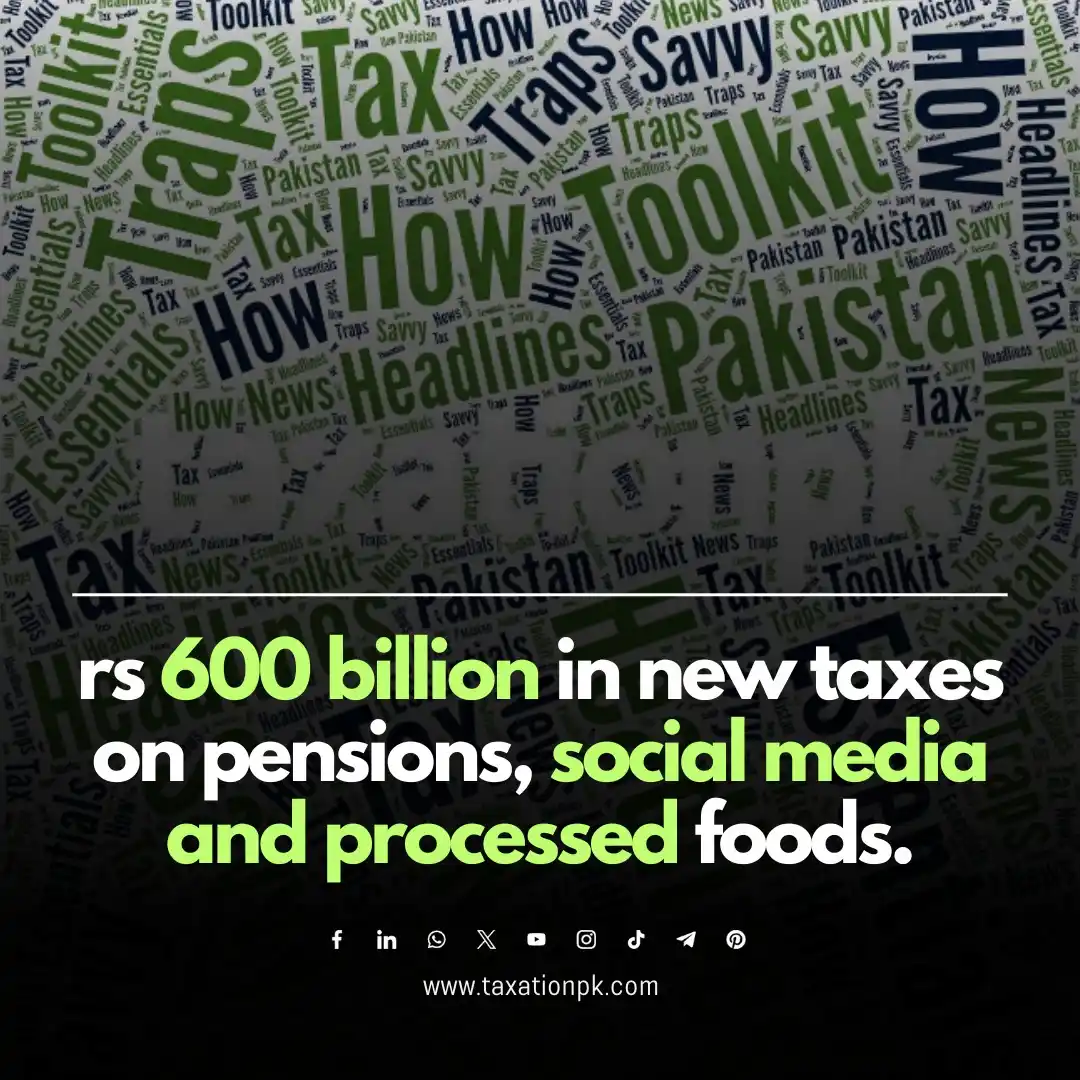

Do you know FBR just collected a whopping Rs30 billion from Karachi's electricity bills in 10 months? ⚡ That's a 52% surge! Higher tariffs and booming industrial demand are fueling this massive tax windfall. Find out how this impacts your bill! Read More: https://news.taxationpk.com/fbr-collects-rs-30-billion-from-karachi-electricity-consumers/
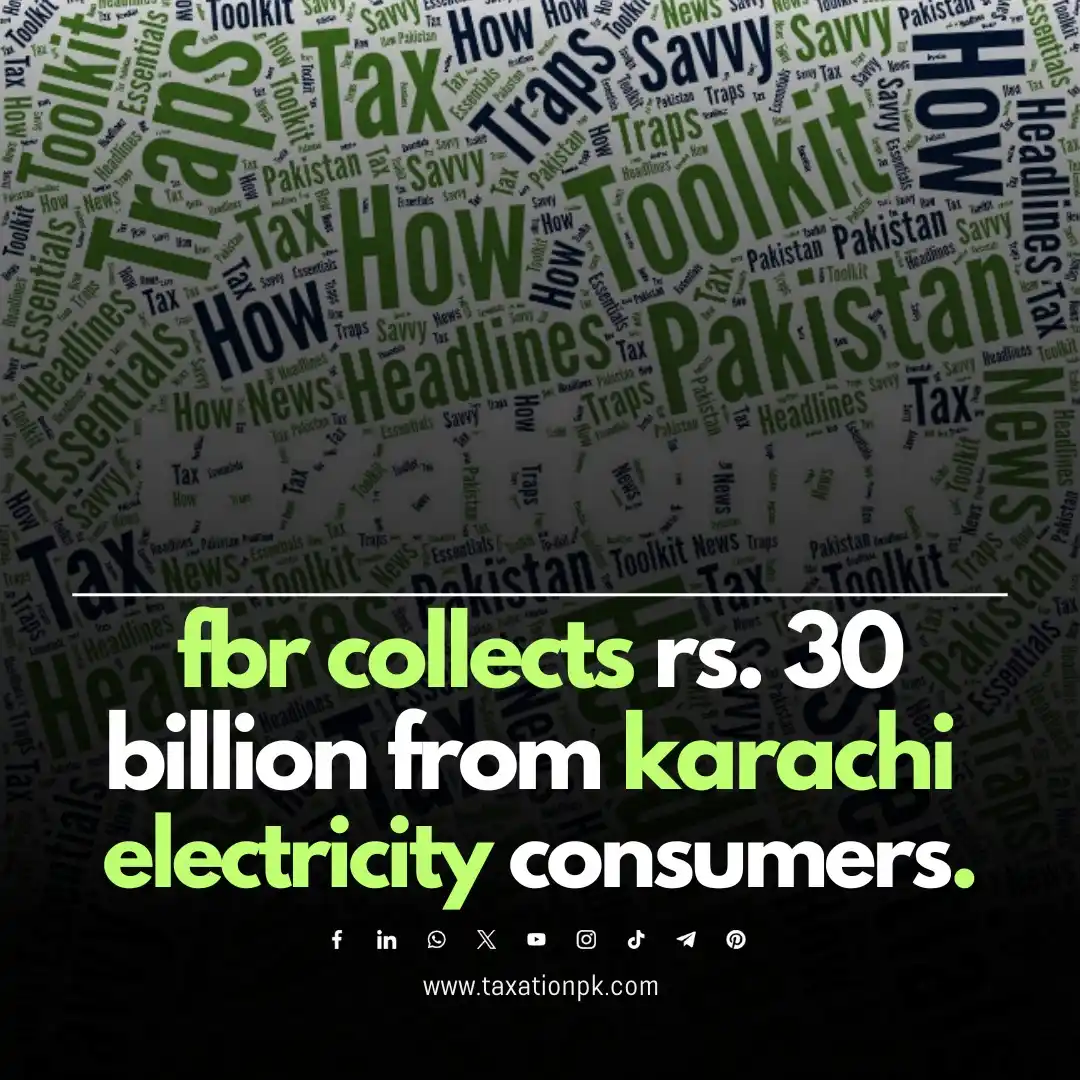

Do you know your April PSX capital gains tax is due soon? 📈 The NCCPL has set June 2, 2025, as the deadline for CGT payments on share and mutual fund disposals from April. Clearing Members, ensure funds are ready. Read More: https://news.taxationpk.com/psx-capital-gains-tax-for-april-disposals-due-june-2nd/
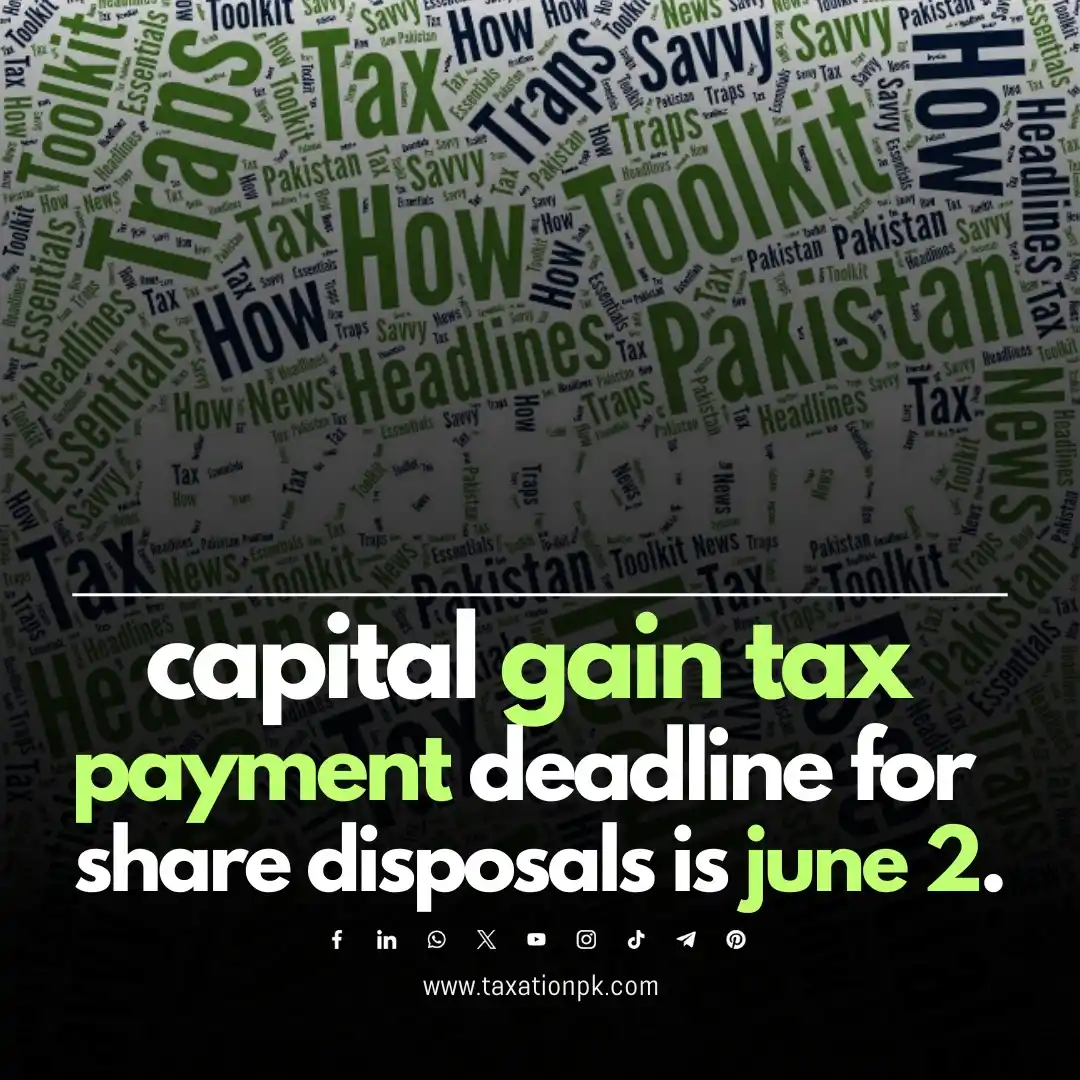

Do you know the Federal Budget for FY 2025-26 has a new date? 🗓️ It's now being presented on June 10, 2025! The Economic Survey comes out June 9th. Plus, the IMF just approved Pakistan's funding for meeting all targets! Read More: https://news.taxationpk.com/federal-budget-2025-26-to-be-presented-on-june-10th/
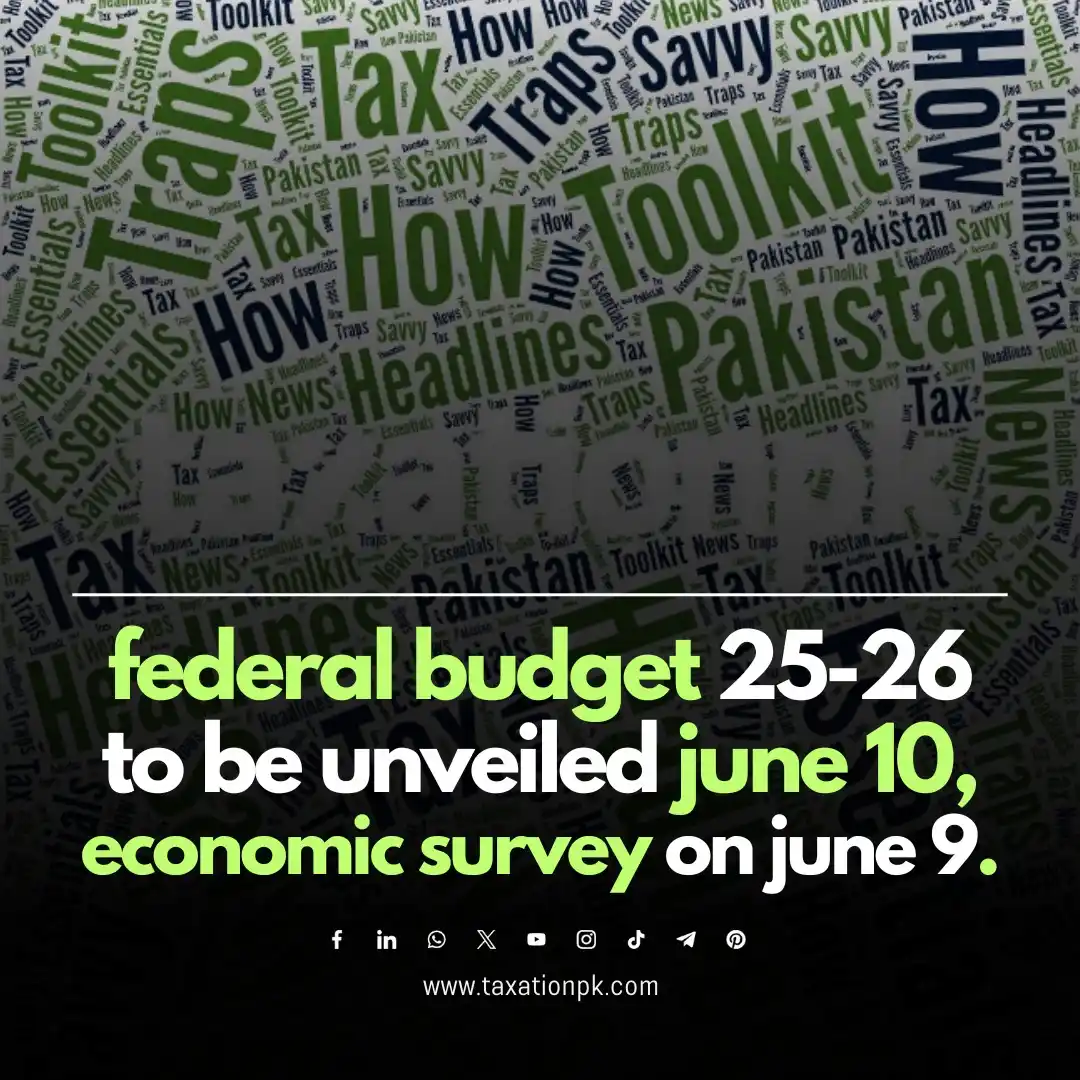

Do you know exporters might face new taxes? 🚢 FBR signals sales tax on imported raw materials for exports in the FY26 budget, pressured by the IMF! Exporters warn of crippling costs, arguing effective tax burdens could hit 45%. Is Pakistan's export future at risk? Read More: https://news.taxationpk.com/fbr-signals-sales-tax-on-raw-material-imports-for-exporters-in-fy26-budget/
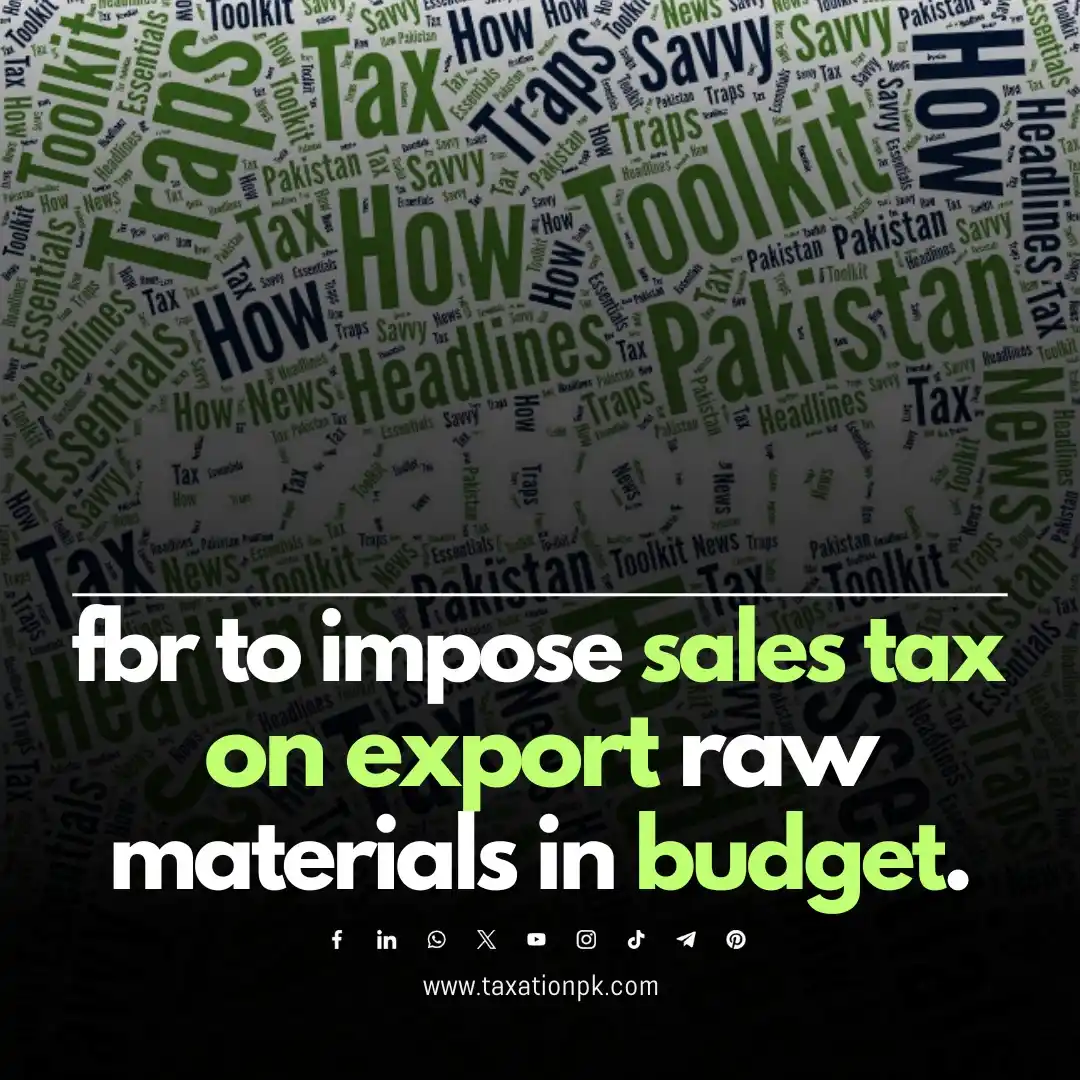

Do you know Pakistan's defense budget might jump by 32%? 🇵🇰💸 A tax firm proposes Rs2.8 trillion for FY26, citing a "war-like situation" with India! Find out how this massive increase could impact the upcoming federal budget. Read More: https://news.taxationpk.com/fy26-defence-budget-proposed-to-jump-to-rs2-8-trillion/
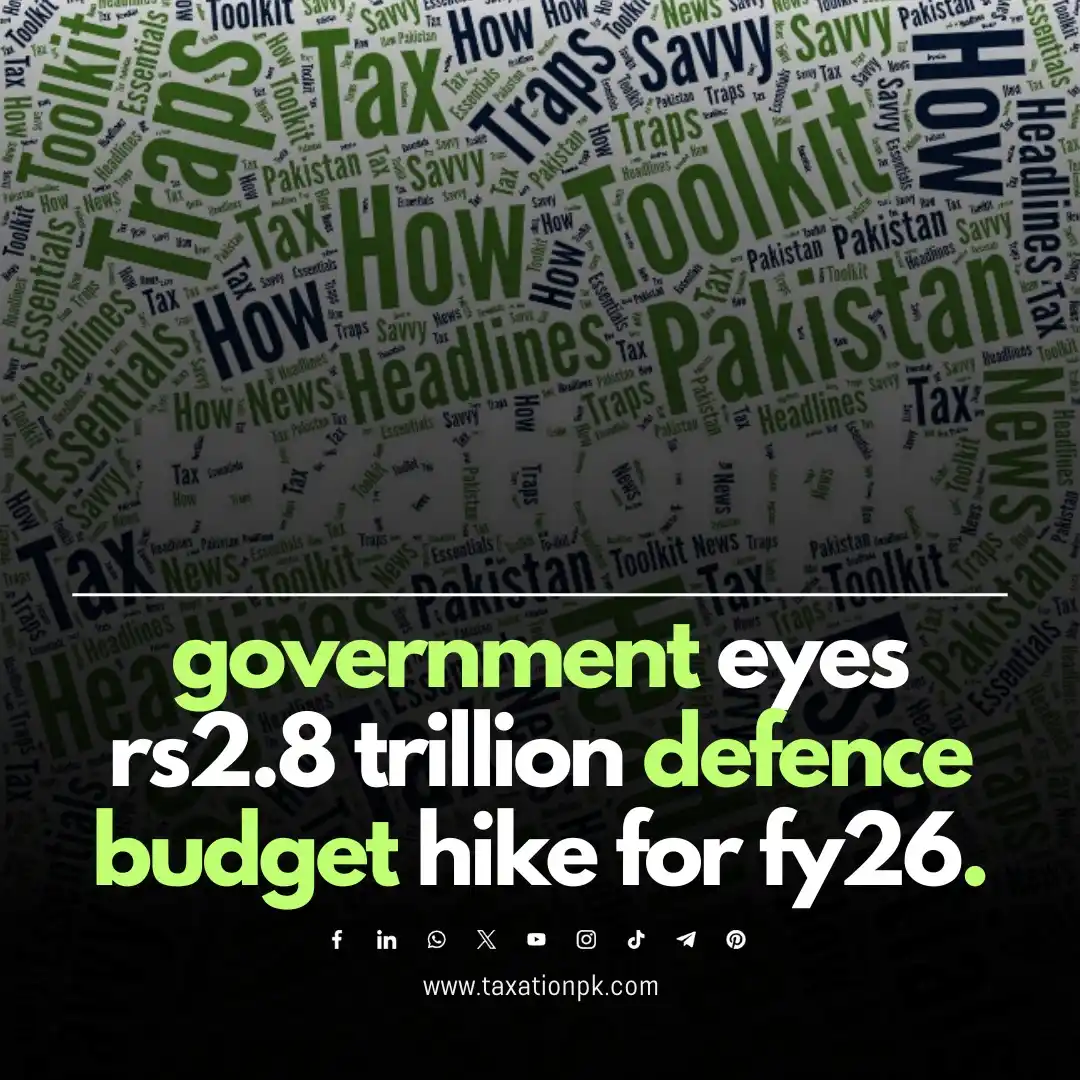

Do you know tax filers in Pakistan are facing major tech issues? 🤯 The Tax Bar just asked the FBR to extend the sales tax return deadline for March/April 2025! Glitches in new online forms are making it impossible to file. Will the FBR grant an extension? Read More: https://news.taxationpk.com/tax-bar-urges-fbr-to-extend-sales-tax-return-deadline-amid-system-glitches/
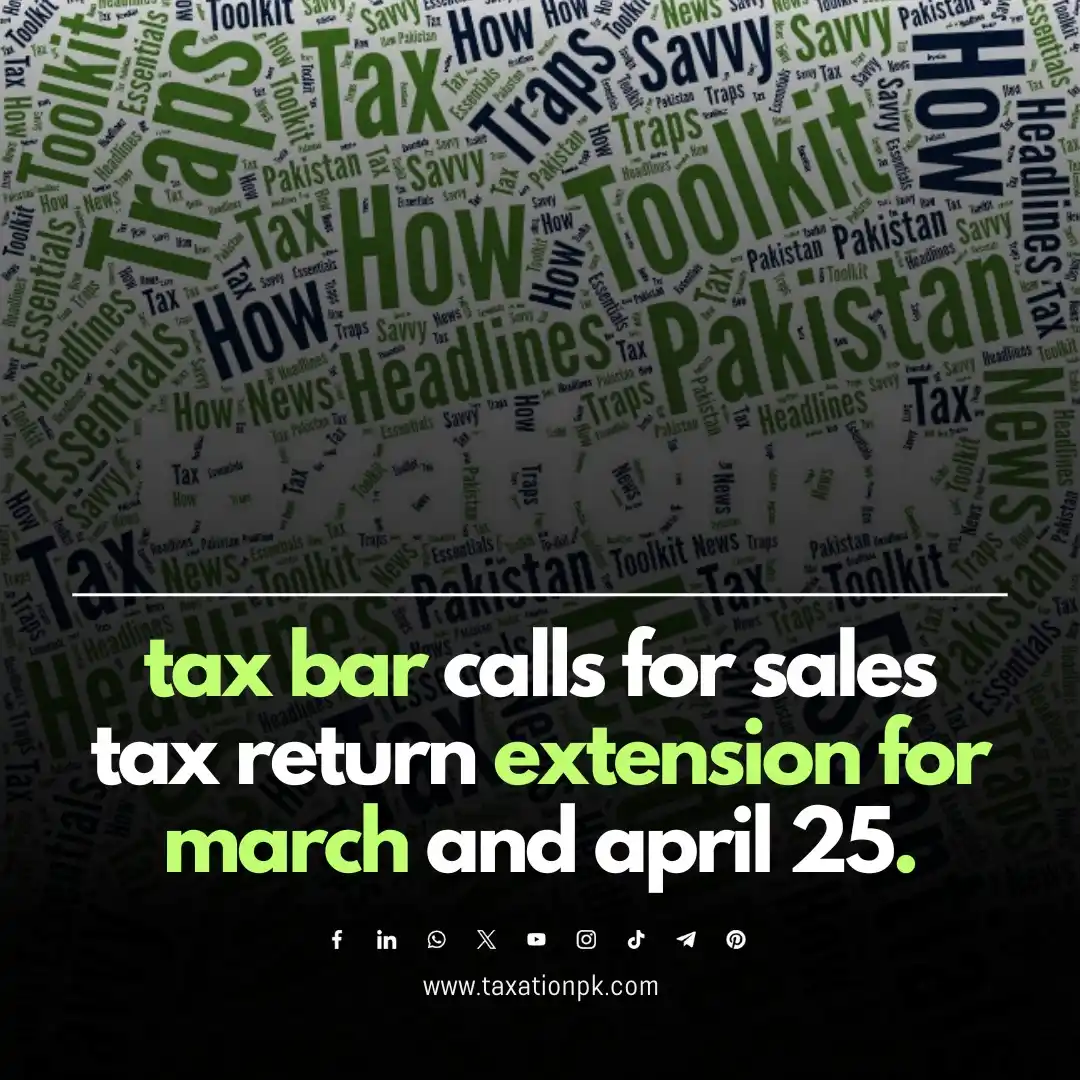







![Cyberwiz [Tiger Insight] WhatsApp Channel](https://cdn1.wapeek.io/whatsapp/2025/02/26/15/cyberwiz-tiger-insight-cover_00e7f0bf71a56f815613a6cbc71ccd33.webp)

